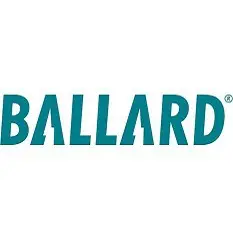Two Top Canadian Hydrogen Stocks to Buy in December 2024
The future undoubtedly lies within renewable energy. Yet, the timeline for completely transitioning from fossil fuels remains uncertain. If we are being pragmatic, it could be decades before a full transition to renewable energy sources takes place.
That makes investing in renewable energy companies and renewable infrastructure a tricky proposition. The euphoria that followed the clean technologies industry between November of 2020 and the start of 2021 has all but evaporated. 2023 saw many of the stocks featured hit multi-year lows.
The top Canadian hydrogen stocks to look at right now
- Ballard Power (TSE:BLDP)
- Loop Energy (TSE:LPEN)
The clean energy sector has dropped materially along with some other popular Canadian stocks, and investors are possibly beginning to question their previous investments.
While valuations certainly were stretched, it is important to remember that investing in the renewable energy industry is a long-term game. In particular, those invested in the top Canadian hydrogen stocks, or considering investing in them must have a very long-term view.
On the other hand, with the sector performing so poorly since those 2021 highs, many of the top clean hydrogen stocks have fallen to much more reasonable levels. There’s no guarantee that buying at low prices will result in a successful investment, but it usually increases one’s chances.
Hydrogen and Canadian hydrogen stocks have been all over the news
Governments around the world are establishing lofty hydrogen strategies. On their way to reducing greenhouse gas emissions and hitting net-zero emissions, they view hydrogen as a key resource in combating climate change. Even Canada has launched its own Hydrogen Strategy to help in reducing carbon emissions.
Others that have announced hydrogen strategies include Japan, South Korea, Australia, New Zealand, Germany, France, Portugal, and the Netherlands, among others.
This is all well and good, but the current reality is that hydrogen is far from becoming a viable commercial alternative to fossil fuels. There is much work to be done. From distribution and storage to transportation and consumption, the technology to adopt hydrogen is in its early stages.
We are still many years away from having a true end-to-end hydrogen supply chain
That is the bad news.
The good news? Investment in things like hydrogen production is ramping up in a big way. As mentioned, governments have made it publicly known that they intend to invest in the hydrogen industry.
In Canada, the industry is estimated to create upwards of $50B in revenue per year and create 350,000 jobs by 2050. Internationally, demand is expected to reach $2.5 trillion by 2050.
There is no question that mass potential for the industry exists. As mentioned, however, it will all come down to how the technology progresses.
Which brings me to how Canadian investors can take advantage of this global shift. Let’s have a look at the best hydrogen stocks to buy today.
Of note, with this being a relatively young industry, there are not a large number of companies that are publicly traded. So, we’ll list the top 2. If you head south to the US markets, you’ll find larger players like Plug Power, Air Products, and Bloom Energy.
Of note, we used to have 3 companies on this list. However, Xebec Adsorption has had some significant issues that resulted in it being removed from the list. We’ll speak more about it later.
Ballard Power (TSE:BLDP)

At the heart of a viable shift to hydrogen is innovative hydrogen fuel cell technology directed at creating more zero-emission vehicles. In Canada, there are a couple of options for investors to consider when looking at hydrogen fuel cells.
The most well-known is Ballard Power (TSX:BLDP). The company is one of North America’s leading hydrogen fuel cell companies, with a market cap of just under $1.5B at the time of writing. Ballard also trades on the NASDAQ exchange.
It has shipped over 850MW of (Polymer Electrolyte Membrane) PEM fuel cell products and counts many major auto manufacturers as strategic partners.
It is important to note that Ballard has a commercially viable product. However, as with any new technology, the adoption has been slow as the company is focused on areas where fuel cell technology has a clear advantage. Today that is in the heavy commercial space.
Thus far, it has powered 1,500 transit buses and 2,300 trucks and has 23 trains and 8 ship projects in development. It also has approximately 9MW in stationary power generation assets under production.
Ballard is largely considered one of the world’s best fuel cell companies with leading technology and proven use cases, especially when it comes to green hydrogen production.
Unfortunately, the stock has been anything but a leader. In the early 2000s, the company’s share price soared before crashing down to earth and effectively did nothing for a decade.
As interest in the hydrogen industry reached a fever pitch, Ballard’s share price soared to multi-year highs in early 2021. Then, the bottom fell out. As of right now, Ballard is trading approximately 90% below those all-time highs witnessed in early 2021.
The loss in value is not all that surprising. Ballard was trading at extreme valuations and was benefiting from the market euphoria. We advised Stocktrades Premium members a few times to be cautious with Ballard. While the underlying technology is sound, the stock price got way ahead of itself.
Even at today’s prices, investors should exercise caution. We are still very much in the early days of the industry, and trading at 15 times sales, Ballard is still extremely expensive.
The company is not expected to become profitable for some time, even though analysts are expecting annual revenue growth in the 50% range through the next few years. While this is a healthy growth rate, Ballard has a mixed history of meeting estimates.
Loop Energy (TSE:LPEN)

Shifting gears from one of the most widely known to likely one of the least known. Loop Energy (TSX:LPEN) is a relatively new company in terms of the stock market, having only gone public on February 25, 2021. Loop designs PEM fuel cell systems targeted for the electrification of commercial vehicles.
The demand for its IPO was quite strong, and it priced at the top end of expectations – $16.00 per share. It touched a high of $17.44 on its first day of trading.
Fortunately for management, the IPO was at peak investor demand for Canadian hydrogen stocks. Unfortunately for investors, those who bought in the early stages of its listing are likely sitting on big losses.
Since its IPO, Loop Energy’s stock price has cratered, and it has lost more than 99% of its value. No, that’s not a typo. The stock currently trades at just $0.14 per share, less than 1% of the value attained on its IPO day.
While the downtrend is unnerving, it is a result of negative industry sentiment. This has nothing to do with the company’s performance or its products. In fact, we quite liked the company when it launched its IPO as it was much more attractively valued than the competition.
As mentioned, however, the markets soured on the industry, and valuations cratered across the board.
Much like Ballard, it is focused first and foremost on commercial applications, including light commercial vehicles, transit buses, medium and heavy-duty trucks, marine, train, mining trucks, material handling vehicles, and stationary power.
Unlike Ballard, Loop Energy is a pre-revenue stage company. It has only begun marketing its products, and analysts don’t expect it to deliver much in sales until 2025. Loop also recently announced it has initiated a strategic review process, seeking out partnerships, outside investments, or joint development opportunities. This was announced in September 2023, and the company has yet to announce any updates.
Loop has also needed to make some hard decisions on the cost side as it has burned through most of the cash it raised in the IPO. It recently announced it was looking to eliminate 65% of its global workforce and close down its China production facility.
However, it’s not all bad news. What makes Loop particularly attractive is that it is backed by Cummins, a $34B global industrial giant. This strategic partnership will enable Loop to enter a multitude of markets more easily.
While the potential looks attractive, Loop Energy is likely to be even more volatile than Ballard. It is a newly listed company, and Loop will be under greater scrutiny than its more established competitor.
Well executed business by the company, and Loop suddenly looks like a bargain at these prices. On the flip side, if it struggles to meet expectations, then investors are likely going to require considerable patience.
An update on Xebec Adsorption (TSE:XBC) and its bankruptcy

Xebec (TSE:XBC) was a global provider of gas generation, purification and filtration solutions for the industrial, energy, and renewables marketplace. It is well-positioned in the energy transition space with proprietary technologies that transform raw gases into clean sources of renewable energy.
Xebec was flying high until the company ran into some financial accounting errors that caused investor confidence to collapse.
As a result, the company traded more than 80% off of its all-time highs. It got even worse in late 2022 when the company filed for bankruptcy protection. We left Xebec on this list not as a top hydrogen stock to buy but more so to highlight the risks of investing in these types of companies.
In 2020/2021, it seemed like stocks could never go down. But as they say, a rising tide lifts all ships. It will be interesting to see how the bankruptcy proceedings go and if Xebec will come out of this and begin trading again.
But for now, use it as an example of how risky small and micro-cap growth stocks are, especially in up-and-coming industries.
Overall, these are 2 strong Canadian hydrogen stocks to add to your radar today, but are not without risk
The bottom line is that Ballard and Loop Energy are well-positioned to be leading fuel cell companies, but in the short term, their fortunes are likely going to be tied to market sentiment.
In the long term, their success will depend on further innovations and the widespread adoption of hydrogen as an alternative energy source.
A purchase of either of these companies right now comes with a high amount of risk. So, make sure investing in the hydrogen economy fits the mould of your portfolio and you as an investor.
